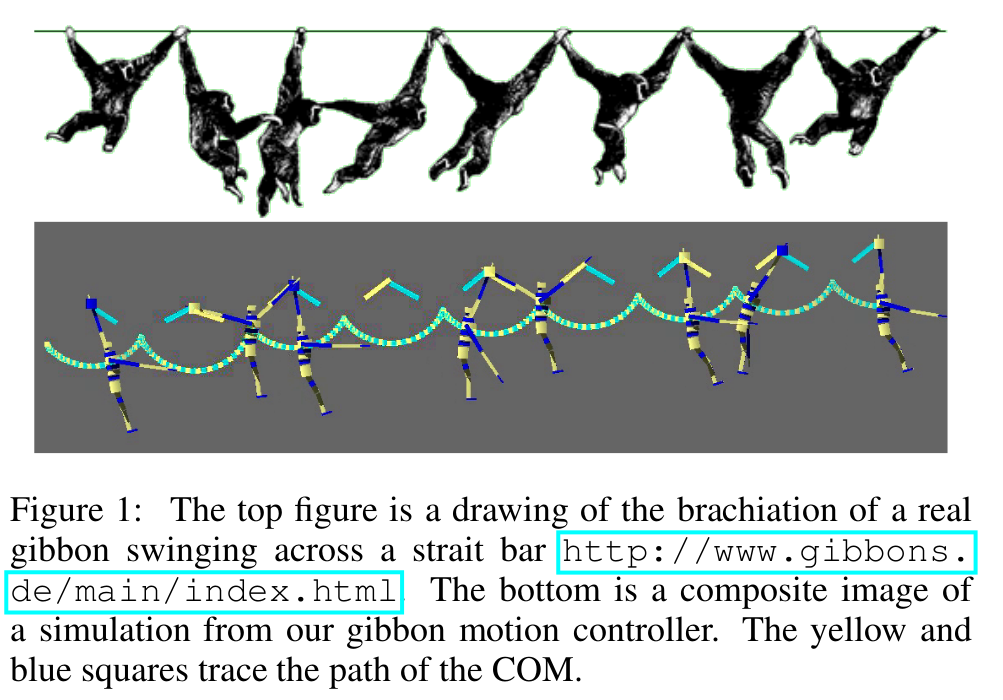- Sun 14 May 2017
- Publication
DeepLoco: Dynamic Locomotion Skills Using Hierarchical Deep Reinforcement Learning
Xue Bin Peng, Glen Berseth, KangKang Yin, Michiel van de Panne
Learning physics-based locomotion skills is a difficult problem, leading to solutions that typically exploit prior knowledge of various forms. In this paper, we aim to learn a variety of environment-aware locomotion skills with a limited amount of prior knowledge. We adopt a two-level hierarchical control framework. First, low-level controllers are learned that operate at a fine timescale and which achieve robust walking gaits that satisfy stepping-target and style objectives. Second, high-level controllers are then learned which plan at the timescale of steps by invoking desired step targets for the low-level controller. The high-level controller makes decisions directly based on high-dimensional inputs, including terrain maps or other suitable representations of the surroundings. Both levels of the control policy are trained using deep reinforcement learning. Results are demonstrated on a simulated 3D biped. Low-level controllers are learned for a variety of motion styles and demonstrate robustness with respect to force-based disturbances, terrain variations, and style interpolation. High-level controllers are demonstrated that are capable of following trails through terrains, dribbling a soccer ball towards a target location, and navigating through static or dynamic obstacles.

